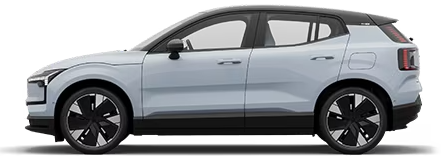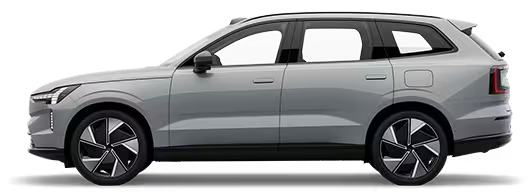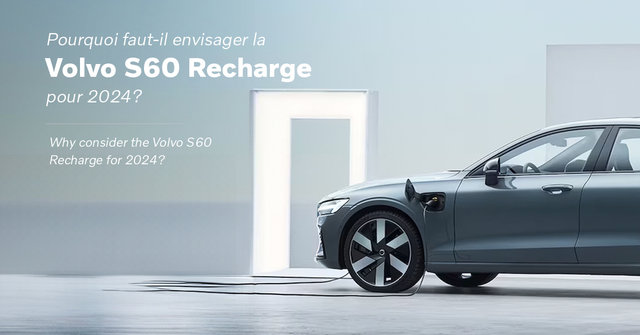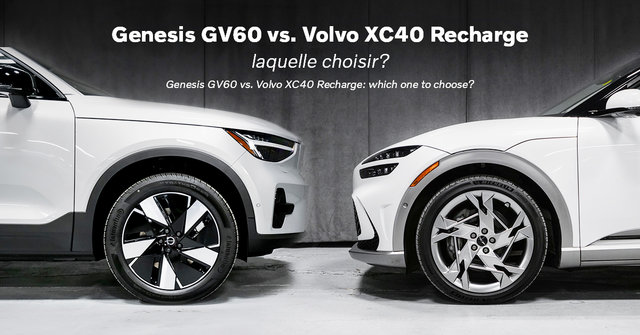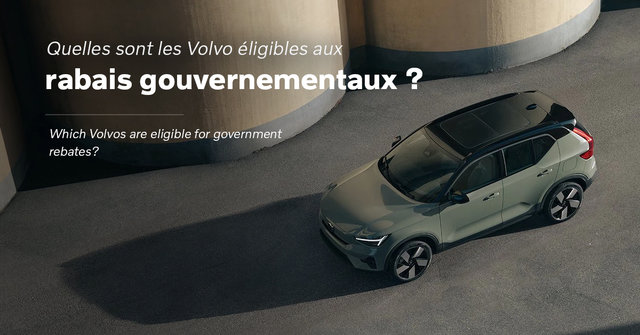Since its launch in the summer of 2000, the Volvo S60 has evolved through 3 consecutive generations. The first, marketed until 2009, focused on safety. From 2010 to 2018, the 2nd generation, introducing a more modern design and advances in safety (City Safety system). Then, the third generation has been marketed since 2019, based on the SPA platform, offering new comfort and safety...
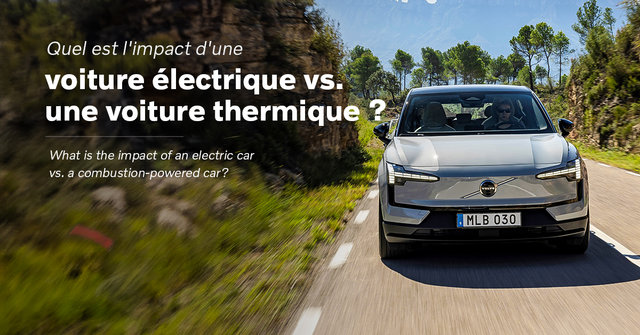
With government regulations increasingly favoring the use of electric vehicles, some critics are targeting the energetic push for such production on a global scale.
From the extraction of raw materials, to production and battery recycling, the environmental impact is significant. But is it any more so than a combustion-powered vehicle?
In this article, we share with you (with data to back it up) the impact of electric vehicles on the environment, Volvo's objective with regard to this data and how, at your level, you can make a positive contribution to reducing your CO2 emissions.
The impact of electric vehicles on the planet
The rise of electric vehicles represents a global effort to reduce the carbon footprint of transport. But as we said, this change raises questions.
Electric vehicles vs. environmental impact
First of all, let's answer an essential question: is an electric vehicle polluting to produce? Yes, there should be no debate about this. However, when calculating environmental impact, we mustn't simply take production into account.
We also need to study the ability of electric vehicles to quickly offset their initial (i.e. production) emissions.
For example, in regions like Quebec, where hydroelectricity is abundant, electric vehicles can reach their ecological break-even point more quickly than in countries where coal and natural gas are predominant. Indeed, the energy mix - in other words, the composition of the energy sources used to generate electricity - plays a crucial role in the environmental impact of an electric vehicle.
What's more, on a global scale, electric vehicles have proved their efficiency, emitting on average half as much greenhouse gas as their internal combustion counterparts. This is amplified by studies compiled by the IPCC and other academic research (here, here and here) which attest that electric vehicles, even though they emit more during production (because of the batteries), outperform combustion vehicles in terms of emissions over the entire life cycle.
It's also important to understand that the benefits of electric vehicles go beyond simply reducing CO2 emissions - they also contribute to a cleaner atmosphere by limiting emissions of air and noise pollutants during vehicle use.
Finally, another study by Hung et al (2021) reinforces this idea, demonstrating that all types of electric vehicles, from city cars to SUVs, reduce emissions by almost 70% compared with combustion vehicles.
Volvo's goals for reducing its environmental impact
Now that you have all this information in mind, let's put our brand back into the picture. With its pioneering drive to become a key player in electric vehicles, Volvo goes beyond the production of clean vehicles, deploying an eco-responsible strategy, from vehicle design to recycling.
Reducing environmental impact at Volvo
Aligning its sustainability ambitions with concrete actions, Volvo aims to offer only fully electric vehicles by 2030. This transition is supported by Volvo's goal that, by 2025, half of its worldwide sales will be exclusively electric models, with annual announcements of new electric models.

But the Swedish brand is not content to simply modify its range of vehicles; the company wants to reduce CO2 emissions at every stage of the chain.
This includes the manufacture of the first climate-neutral plant (in Sweden), as well as a commitment to reduce emissions linked to the production of materials such as steel and battery components by 25%. Volvo is striving to reduce its carbon footprint per car by 40% between 2018 and 2025, while aiming for climate-neutral production by 2025.
The Volvo EX30: a compact, low-carbon electric SUV
To embody this vision, a vehicle was needed. With the Volvo EX30, Volvo promises a carbon footprint of less than 30 tonnes over 200,000 km, giving this model a 25% reduction compared with the all-electric C40 and XC40 models.
What's more, the use of recycled and renewable materials in the design of the Volvo EX30, combined with the rationalization of the production and supply chain, contributes to this approach.
Make a positive contribution to reducing your CO2 emissions
Beyond electric vehicles, it's becoming important to rethink our dependence on the car, on an individual basis. We understand that the transition to electric vehicles represents a significant step forward, but for sporadic use, the absence of a car has a greater impact.
First of all, it's advisable to opt for electric vehicles designed to meet your everyday needs, thus avoiding the production of oversized cars.
Then, with a view to sharing alternative transport solutions, cycling emerges as a viable solution when weather conditions allow. In this spirit, working with Trek Montréal is a natural way to offer you the opportunity to travel sustainably.
We're thrilled to partner with them to offer our customers exclusive deals that make cycling more affordable, such as a $150 discount on acoustic bikes and a $200 rebate on electric bikes.
A few final words
We know that the car is at the heart of your travels, especially when there's no other alternative. We also know that the car is an integral part of our culture, whether you use it to get to work or to go on a weekend getaway.
However, this should not prevent us from thinking about the future, first and foremost by buying an electric Volvo rather than a combustion-powered vehicle, or giving priority to public transport or sustainable transport (cycling) whenever conditions allow.
In any case, the entire Volvo Saint-Léonard team remains at your disposal to help you through this transition.
Other Articles That May Interest You
Currently, among all the electric SUVs on the Canadian market, one model in particular catches our eye - the Genesis GV60. The Korean manufacturer's latest model, the GV60, aims to offer a luxurious, compact alternative to the electric city SUV market. But is it really worth buyers' attention, especially when compared to the Volvo XC40? In this article, we offer a quick comparison. The duel of...
Government rebates! With the Canadian government aiming to ban the use of combustion-powered vehicles by 2035, drivers will have to switch to cars with lower Co2 emissions. So if you want to keep driving your Volvo on Quebec's beautiful roads, there are two alternatives: plug-in hybrids or 100% electric vehicles. But this technology is still expensive to buy, compared with a combustion vehicle...



